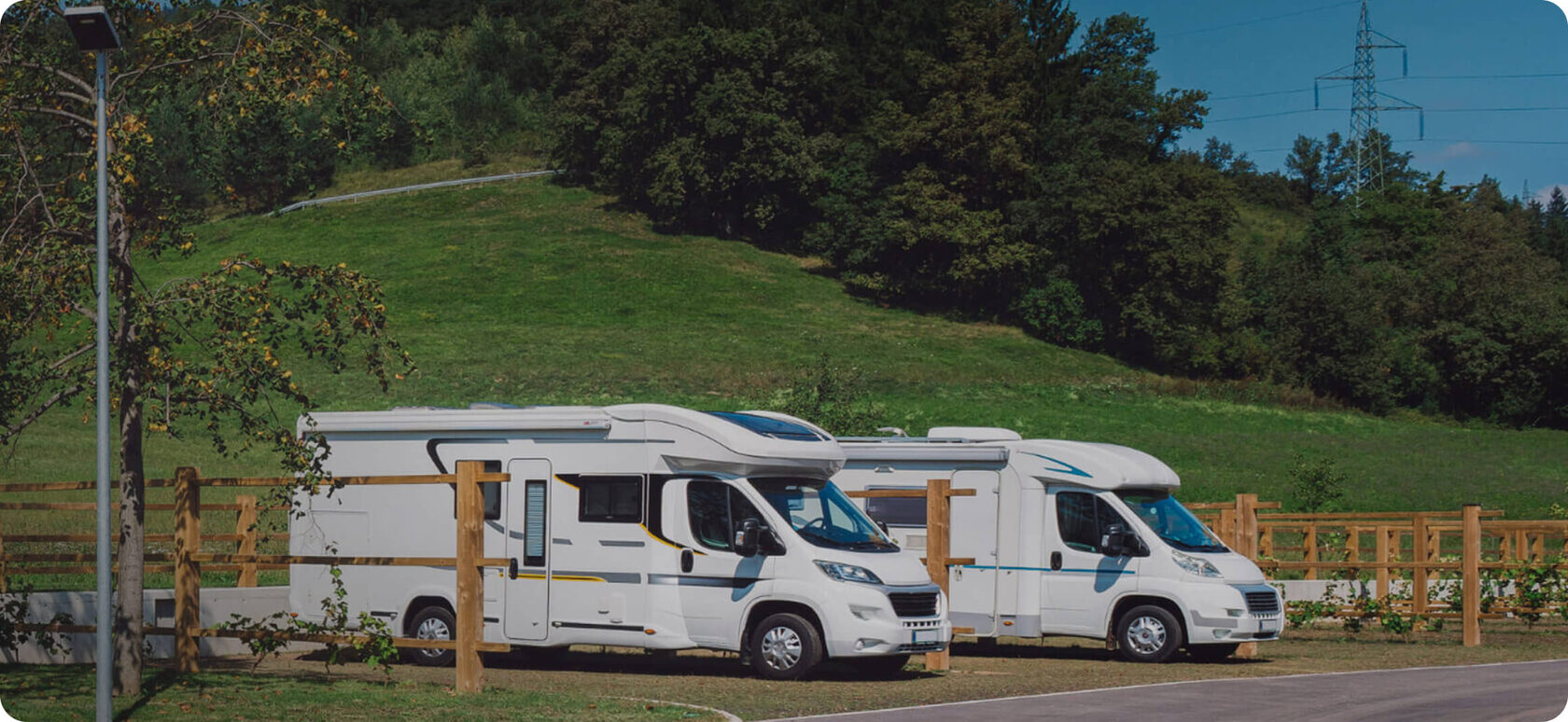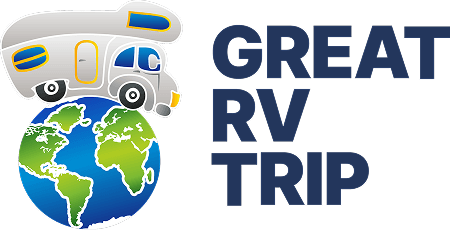Motorhome travel
Motorhome travel
The discount is valid for bookings over 10 days
Motorhome rental
Leave your contacts so we can contact you
Route with Full Travel Support
We will create a personalized route tailored specifically to your wishes and interests. You’ll receive a detailed travel guide with descriptions of must-see attractions, up-to-date prices, and helpful tips. We’ll book your campsites in advance and mark convenient stopovers, so everything is planned for you.
Prefer spontaneous travel and making decisions on the go? We’ve got you covered with full support along the way. We’ll be in touch with you 24/7 to:
Find and book a great restaurant or tour along the route;
Help locate nearby service points, like water disposal or refueling stations;
Quickly adjust your route if you’re in the mood for new experiences.
With us, your journey will be easy, well-organized, and truly free.
Prefer spontaneous travel and making decisions on the go? We’ve got you covered with full support along the way. We’ll be in touch with you 24/7 to:
Find and book a great restaurant or tour along the route;
Help locate nearby service points, like water disposal or refueling stations;
Quickly adjust your route if you’re in the mood for new experiences.
With us, your journey will be easy, well-organized, and truly free.

We will contact you, find out your preferences and offer several good options
Dreaming of hitting the open road with the comforts of home? You’re in the right place. This guide breaks down everything you need to know for a successful and stress-free first motorhome journey. We’ll turn your questions into confidence.
Your First RV Trip: A Step-by-Step Guide for Beginners
#rec1765774901, #rec1765726201, #rec1765773361, #rec1765744791, #rec1765744801
#rec1765776881, #rec1765749121, #rec1765749131
#rec1765779731, #rec1765762251
#rec1765780671, #rec1765765301, #rec1765765311, #rec1765766561, #rec1765766571
A great trip starts with a great plan. While RV travel offers freedom, a little forethought goes a long way.
Where to Go? Choosing a Destination
For your first trip, think regional, not cross-country. A 7-10 day trip with an average daily drive of 2-3 hours (around 200 km or 125 miles) is a perfect start. National parks, scenic coastlines, and lake regions are ideal RV destinations. Avoid large city centers where driving and parking are difficult. Need inspiration? Check out our curated RV Trip Routes for proven ideas.
When to Go? Picking the Right Season
Spring and Fall (the "shoulder seasons") are often the best times for RV travel. You’ll find fewer crowds, lower prices, and pleasant weather. Summer is peak season with higher costs, while winter travel requires special preparation for heating and potential water system freeze-ups.
The vehicle you choose will be your home on wheels. The main factor is the number of people traveling, but comfort and driving style also matter.
Main Types of Rental Motorhomes:
Class C (Alcove/Over-cab): The most popular rental type. A great all-rounder with a balance of space and drivability, sleeping 4-7 people. Perfect for families.
Class B (Campervan): The most compact and maneuverable option. Easy to drive and park, ideal for couples or solo travelers. Sleeps 2-4.
Class A (Bus-style): The largest and most luxurious option, offering maximum space and amenities. Feels like a true home on wheels but requires more confidence to drive. Sleeps 4-6.
Class B (Campervan): The most compact and maneuverable option. Easy to drive and park, ideal for couples or solo travelers. Sleeps 2-4.
Class A (Bus-style): The largest and most luxurious option, offering maximum space and amenities. Feels like a true home on wheels but requires more confidence to drive. Sleeps 4-6.
What does an RV trip actually cost? Here’s a typical breakdown for a 10-day trip in Europe for 4 people:
RV Rental: The biggest cost. Approx. €130/day + extras = €1600.
Fuel: Diesel engines average 10-13 L/100km. For a 2000 km trip, budget around €400-€500.
Campsites: Budget €25-€50 per night for paid campgrounds with facilities. Total: €350+
Security Deposit: A refundable hold of €500-€1500 placed on your credit card.
Total Estimated Cost (excluding food/activities): ~€2350 or about €590 per person.
Fuel: Diesel engines average 10-13 L/100km. For a 2000 km trip, budget around €400-€500.
Campsites: Budget €25-€50 per night for paid campgrounds with facilities. Total: €350+
Security Deposit: A refundable hold of €500-€1500 placed on your credit card.
Total Estimated Cost (excluding food/activities): ~€2350 or about €590 per person.
Don’t be intimidated! Operating an RV is simple once you know the basics. Your rental agency will give you a full walkthrough, but here are the key systems:
Water & Waste ("Dumping")
You have three tanks: Fresh Water (for sinks/shower), Grey Water (from sinks/shower), and Black Water (from the toilet). You’ll need to empty the grey/black tanks and refill the fresh water every 2−4 days at a designated "dump station" or full-hookup campsite. It’s a simple and clean process.
Electricity & Gas
The RV’s lights and water pump run on a "house" battery that charges as you drive. To use high-power items like a microwave or AC, you must be plugged into external power (at a campsite) or use an onboard generator (common in US RVs). The refrigerator, water heater, and stove typically run on propane gas.
Your First RV Trip Checklist: 10 Essential Tips
- Book in Advance: Especially for summer, book your RV and popular campsites 3-6 months ahead.
- Pack Light: RVs have storage, but it's not infinite. You need less than you think.
- Arrive Early for Pickup: Allow at least 1-2 hours for the vehicle inspection and orientation. Record a video during the walkthrough!
- Do a Test Drive: Spend 15 minutes driving around the rental lot to get a feel for the size, turning radius, and brakes.
- Know Your Height: Write the RV's height on a sticky note and put it on the dashboard. Be mindful of low bridges and drive-thrus.
- Plan Your First Night Close By: Book your first night's campsite within an hour's drive of the rental agency. This gives you time to get settled in daylight.
- Use Apps for Navigation and Parking: Google Maps is great, but apps like Park4Night and Campendium are essential for finding RV-friendly parking and campsites.
- Set Up Camp Before Dark: Everything is harder in the dark. Arrive at your campsite with at least an hour of daylight to spare.
- Take it Slow: You're driving a house, not a sports car. Drive slower than you would in a car, brake earlier, and take wide turns.
- Be Flexible and Have Fun: Things might not always go perfectly to plan. Embrace the journey—that's the spirit of RV travel!
Do you dream of a real road adventure with the comfort of home?
Fasten your seat belts, let’s go!
Fasten your seat belts, let’s go!
The next few pages will tell you all about traveling by camper, preparing the route and help you imagine yourself driving your own house. Even if this is the first time you hear that the house may have a steering wheel.
In this guide, we have collected all the basic questions that people who travel by motorhome for the first time are asking. After reading it, you will have a complete understanding of what a motorhome is, where to go, how to maintain it, what you need to plan your route, how to rent it, and much more.
In this guide, we have collected all the basic questions that people who travel by motorhome for the first time are asking. After reading it, you will have a complete understanding of what a motorhome is, where to go, how to maintain it, what you need to plan your route, how to rent it, and much more.
Why is it worth it?
If you are reading this article, you probably already know the most obvious answer to this question: traveling by motorhome is a dream come true, freedom and the spirit of adventure! This is comfort when traveling long distances and during parking, the ability to choose the view from the window and the place where you want to wake up and not rush anywhere.
For whom?
Caravanning is perfect for active people who enjoy outdoor recreation and complete freedom in choosing destinations. The camper’s crew can include groups of friends, families with children, couples, and solo travelers.
Motorhome rentals are often used to decide whether to buy their own camper. This experience allows you to weigh the pros and cons, evaluate the technical aspects and comfort.
Motorhome rentals are often used to decide whether to buy their own camper. This experience allows you to weigh the pros and cons, evaluate the technical aspects and comfort.
What can you expect from traveling in a motorhome?
It will be a real adventure, a daily change of locations, landscapes and views from the window. Maybe a forest and mountains? Or do you prefer a quiet parking lot with a view of the lights of the evening metropolis? It all depends on your preferences. Keep in mind that the motorhome requires certain maintenance: refueling with water, draining the sewer, stretching the awning at the campsite, etc. All these pleasant chores are an integral part of traveling by camper.
What you definitely shouldn’t expect from such a trip is an all-inclusive service and ready-made solutions.
What you definitely shouldn’t expect from such a trip is an all-inclusive service and ready-made solutions.

FAQ
Next, you will find several pages of information covering the topic of camper travel in detail. For your convenience, we will put short answers to the most popular questions at the beginning. You will find more detailed answers to these and other questions in the main part of the guide.
You can drive almost any motorhome with your regular category "B" license in any country in the world.
Mostly, yes. There are also models without bathrooms.
Yes, a water heater is installed in motorhomes. You can take a hot shower.
A motorhome is taller, longer, and wider than a passenger car. You need to pay attention to the height of the objects you are passing under, as well as make turns a little further than usual when entering an intersection. In fact, everything is quickly mastered in just a day. Many models have rear-view cameras.
1.Rent a motorhome
The price depends on the season, location, and model of the motorhome.
On average, € 100-€ 150/day in low season
and € 150-€ 250/day in high season.
In many companies, bed linen and kitchen utensils, as well as other additional options, are considered separately.
2.Fuel
The average is 9−13 liters per 100 km, depending on the model.
American motorhomes consume 25−35 liters per 100 km.
Other expenses, such as camping, toll trails, and maintenance, are optional and depend on your travel itinerary.
The price depends on the season, location, and model of the motorhome.
On average, € 100-€ 150/day in low season
and € 150-€ 250/day in high season.
In many companies, bed linen and kitchen utensils, as well as other additional options, are considered separately.
2.Fuel
The average is 9−13 liters per 100 km, depending on the model.
American motorhomes consume 25−35 liters per 100 km.
Other expenses, such as camping, toll trails, and maintenance, are optional and depend on your travel itinerary.
Full insurance with deductible and collateral. The tenant’s liability for the motorhome does not exceed the deductible amount, which averages € 500-€ 1,500.
It’s quite simple. It is necessary to replenish water supplies, drain dirty water and toilet. This can be done at camping sites, gas stations, and special service areas for motorhomes. On average, this procedure is performed once every 2−3 days for a company or a family of 4 people.
There is a separate battery in the residential part of the motorhome, from which the light works, you can charge gadgets and other low-power electrical appliances. In order for the hair dryer and kettle to work, you need to connect the motorhome to external electricity. You don’T need to keep the motorhome running.
Motorhomes have independent heating, which is powered either by diesel (webasto and analogues) or by gas. In 10−20 minutes, the residential module is fully warmed up to room temperature.
Yes, it is powered by gas. You do not need to connect to external 220v electricity or keep the motorhome running.
At special paid campsites for motorhomes or at free parking lots that can be found on Google Maps and the park4night app, or stay where you like if there are no forbidding signs.
We do not charge any additional fees for renting a motorhome. You pay the price set by the distributor. It doesn’t matter if the booking is made through us or directly. We have additional paid services for developing a route and booking campsites.
Yes, we work as a broker. We work with trusted distributors all over the world. We select the best offers based on your application. Often, we offer prices even lower than those of a direct distributor, thanks to our partner discounts. You don’t have to spend time searching, studying conditions in a foreign language, or comparing companies. We will do all this for you.

Planning a trip on a motorhome
Where to go by motorhome?
Usually, people travel to a mobile home to see a certain region, country, or several countries at once. The comfortable habitat of a motorhome is nature. Nature reserves, national parks, canyons, mountains, lakes, beaches, and small towns are typical locations for traveling in a trailer. Motorhome is not good friends with megacities: it is more difficult for them to maneuver in conditions of cramped streets and traffic, it is more difficult to find parking, campsites are usually located at a distance from the center and you will need to use additional transport to see the city.
A motorhome is a great option for trips to music festivals, competitions and races. The legendary Burning Man is the most striking example.
A motorhome is a great option for trips to music festivals, competitions and races. The legendary Burning Man is the most striking example.
How do I plan my route?
The convenience of traveling by motorhome is that you don’t have to rush or, conversely, procrastinate. You travel at your own pace and take into account the needs of all passengers, especially young children. It is worth noting that the motorhome is inferior in speed to a passenger car.
The main points to consider:
The main points to consider:
- Places and attractions that you want to visit
- Total mileage and pace
- Overnight stops
Distances, duration, speed of movement
On average, our tourists rent campers for 8−14 days.
We recommend planning an average daily mileage of no more than 200 kilometers, so that the road is enjoyable and takes no more than 2−3 hours per day on average. For example, you will cover 2,000 km in 10 days of travel. One day your mileage can be 500 km, and the next two days you can spend in one place. It is worth considering that a motorhome is slower than a passenger car. If you have the task of driving a large motorhome without stops and rest, in practice you get a maximum of 700−800 km per day.
We recommend planning an average daily mileage of no more than 200 kilometers, so that the road is enjoyable and takes no more than 2−3 hours per day on average. For example, you will cover 2,000 km in 10 days of travel. One day your mileage can be 500 km, and the next two days you can spend in one place. It is worth considering that a motorhome is slower than a passenger car. If you have the task of driving a large motorhome without stops and rest, in practice you get a maximum of 700−800 km per day.
A circular route or with a return at another location
Most travelers start and end their journey in a motorhome in the same city. In this case, the route is built around a ring so that the path does not repeat itself.
Some rental companies provide the opportunity to rent a motorhome in one location and rent it in another. An additional fee (one-way fee) is charged for this service. The further away the pick-up and return point are from each other, the higher this fee will be.
Examples of one-way fee (average values)
USA
New York ⇆ Los Angeles $ 700
Los Angeles ⇆ San Francisco $ 200
Miami ⇆ New York $ 400
Türkiye
Istanbul ⇆ Antalya € 500
Izmir ⇆ Antalya € 350
Europe
Lisbon ⇆ Faro € 200
Barcelona ⇆ Porto € 800
Warsaw ⇆ Berlin € 400
Frankfurt ⇆ Paris € 400
Rome ⇆ Zagreb € 700
Rome ⇆ Prague € 1000
Oslo ⇆ Tromse € 1400
Some rental companies provide the opportunity to rent a motorhome in one location and rent it in another. An additional fee (one-way fee) is charged for this service. The further away the pick-up and return point are from each other, the higher this fee will be.
Examples of one-way fee (average values)
USA
New York ⇆ Los Angeles $ 700
Los Angeles ⇆ San Francisco $ 200
Miami ⇆ New York $ 400
Türkiye
Istanbul ⇆ Antalya € 500
Izmir ⇆ Antalya € 350
Europe
Lisbon ⇆ Faro € 200
Barcelona ⇆ Porto € 800
Warsaw ⇆ Berlin € 400
Frankfurt ⇆ Paris € 400
Rome ⇆ Zagreb € 700
Rome ⇆ Prague € 1000
Oslo ⇆ Tromse € 1400
Overnight stops
Travelers spend the night at paid campsites or wild sites where it is not prohibited. On routes longer than 7 days, we recommend making stops in the most interesting and beautiful places for 2−3 nights. This is especially true for national parks, which cannot be bypassed in 1 day.
Paid campsites
There are special campsites for campers, which are landscaped areas with designated areas for caravans. At the campsite you will find toilets, showers, a kitchen and a barbecue area, washing machines and clothes dryers. There may also be cafes, restaurants, playgrounds, swimming pools, sports equipment, golf courses, etc. Some campsites are difficult to distinguish by infrastructure from five-star hotels. On the rented plot, you will be able to connect the camper to electricity and water. Most campsites in America and Canada also have an individual drain for sewage, less common in Europe, where cassette-type toilets (portable) are popular.
When choosing a campsite, it is important to understand the logistics of your vacation, what will be interesting around and how you will get from there to interesting places and attractions.
There are a lot of paid campsites in Europe and the USA, but during the high season (from May to September), good campsites are quite densely occupied by vacationers. It is worth booking seats in advance.
It is easy to find a suitable camping site along your route in Google Maps. There are also many camping apps. Below are the most popular ones.
Camping Search Apps
Prices
Europe — price per night € 25-€ 45
USA— price per night is $ 60-$ 80
Turkey— price per night € 15-€ 30
When choosing a campsite, it is important to understand the logistics of your vacation, what will be interesting around and how you will get from there to interesting places and attractions.
There are a lot of paid campsites in Europe and the USA, but during the high season (from May to September), good campsites are quite densely occupied by vacationers. It is worth booking seats in advance.
It is easy to find a suitable camping site along your route in Google Maps. There are also many camping apps. Below are the most popular ones.
Camping Search Apps
USA | Europe |
campendium.com | camping.info |
thedyrt.com | pitchup.com |
reserveamerica.com | caramaps.com |
nps.gov | campercontact.com |
rvparky.com | eurocampings.co.uk |
parkadvisor.com |
Prices
Europe — price per night € 25-€ 45
USA— price per night is $ 60-$ 80
Turkey— price per night € 15-€ 30

Free parking
The motorhome is completely self-contained, technically you can spend the night in it, anywhere. There is no need to constantly connect to electricity and water. However, not everywhere you can stand where you like.
First of all, you can focus on the main rule: "Motorhome can be placed where it is not prohibited by road signs." In Europe, in many countries, you can spend the night without any visible signs that you are going to camp here (that is, you do not take out tables, chairs, barbecue, etc.)
If you want to get up completely for free: open the awning, light the grill, then such a place can be found on the map of the park4night application. There are paid campgrounds and wild parking lots with descriptions and photos of travelers.
As a last resort, you can stand where truck drivers and other travelers with motorhomes spend the night.
Learn more about finding campsites in Europe https://greatrvtrip.com/en/blog/camp in USA
https://greatrvtrip.com/en/blog/camp_usa
First of all, you can focus on the main rule: "Motorhome can be placed where it is not prohibited by road signs." In Europe, in many countries, you can spend the night without any visible signs that you are going to camp here (that is, you do not take out tables, chairs, barbecue, etc.)
If you want to get up completely for free: open the awning, light the grill, then such a place can be found on the map of the park4night application. There are paid campgrounds and wild parking lots with descriptions and photos of travelers.
As a last resort, you can stand where truck drivers and other travelers with motorhomes spend the night.
Learn more about finding campsites in Europe https://greatrvtrip.com/en/blog/camp in USA
https://greatrvtrip.com/en/blog/camp_usa
In which countries can I travel by motorhome?
The most developed regions are the USA, Europe, and Australia. It has all the necessary infrastructure, which has been formed over 100 years of the history of the development of this type of recreation. You can rent a camper in almost any more or less developed city.
Nowadays, the culture of caravanning has spread across all five continents. Today, you can rent a motorhome in 50 countries around the world.
The most popular locations among our tourists:
Europe
Nowadays, the culture of caravanning has spread across all five continents. Today, you can rent a motorhome in 50 countries around the world.
The most popular locations among our tourists:
Europe
Austria | Italy | Serbia |
Belgium | Latvia | Slovenia |
Bulgaria | Lithuania | Finland |
Great Britain | Liechtenstein | France |
Hungary | Luxembourg | Croatia |
Germany | Netherlands | Montenegro |
Greece | Norway | Czech |
Denmark | Poland | Switzerland |
Irish | Portugal | Sweden |
Iceland | Russia | Estonia |
Spain | Romania |
Africa | Oceania | North America |
Botswana | Australia | Canada |
Zambia | New Zealand | USA |
Morocco | Mexico | |
Mozambique | Asia | South America |
Namibia | Japan | Argentina |
Tanzania | Chile | |
South Africa | Brazil |
Burning Man
Burning Man is a crazy art event that takes place annually in Nevada. 80,000 people gather in the Black Rock Desert to build a temporary metropolis with their own hands, which will last only 8 days. One of the most popular dwellings in Bern is a motorhome. Living in a motorhome is much more pleasant than living in a tent or tent. Inside there is everything you need to survive in the desert: a bed, a shower, a toilet, a stove, a refrigerator, places to store things and food, as well as air conditioning. The latter is especially important: the daytime air temperature in Black Rock City rises to +40.
When should I go?
Most tourists choose the most comfortable weather conditions.
It is worth noting that in Europe, as well as in the United States, the busiest and most expensive months are July and August, the time of the summer school holidays. Motorhomes should be booked strongly in advance — in the spring, before the start of the high season. There is also a large number of tourists at this time, which inevitably leads to maximum occupancy of popular campsites.
Ideal in terms of price and comfort — spring and autumn, they can be spent in countries with a milder climate, while saving decently and avoiding the influx of fellow travelers.
It is worth noting that in Europe, as well as in the United States, the busiest and most expensive months are July and August, the time of the summer school holidays. Motorhomes should be booked strongly in advance — in the spring, before the start of the high season. There is also a large number of tourists at this time, which inevitably leads to maximum occupancy of popular campsites.
Ideal in terms of price and comfort — spring and autumn, they can be spent in countries with a milder climate, while saving decently and avoiding the influx of fellow travelers.
Features of winter travel
Winter is considered the low season in America, Europe and other countries of the northern hemisphere. Accordingly, the lowest price tags at this time. You can comfortably travel to the countries of southern Europe, Turkey or the southern states of the USA. Many people use motorhomes to travel to ski resorts. It’s also interesting to travel in winter, but there are quite a few campsites operating all year round. It should be taken into account that in the cold season, the heating in the motorhome should work around the clock, so you will have to think over the points of refueling or exchanging gas cylinders. It is worth bearing in mind that in American motorhomes in winter there are restrictions on the use of water systems and the toilet of the motorhome.

What is in the motorhome and what to take with you?
The motorhome has everything that an ordinary apartment would have.
Beds, shower, toilet, fully equipped kitchen with stove, refrigerator; TV, heating. American motorhomes will also have a microwave, oven, ceiling air conditioning and sometimes washing machines. The rental company will provide you with all the necessary kitchen utensils, bed linen, camping kits and everything that will be useful on the way. For your comfort, it is worth taking clothes according to the weather. There are enough lockers for things. Sockets for laptops and other gadgets will work both while driving and when connected at a campsite.
You just have to take care of the little things: a headlamp, a mosquito repellent, a child’s favorite toy, a garland to create an atmosphere, or a mug dear to your heart.
Beds, shower, toilet, fully equipped kitchen with stove, refrigerator; TV, heating. American motorhomes will also have a microwave, oven, ceiling air conditioning and sometimes washing machines. The rental company will provide you with all the necessary kitchen utensils, bed linen, camping kits and everything that will be useful on the way. For your comfort, it is worth taking clothes according to the weather. There are enough lockers for things. Sockets for laptops and other gadgets will work both while driving and when connected at a campsite.
You just have to take care of the little things: a headlamp, a mosquito repellent, a child’s favorite toy, a garland to create an atmosphere, or a mug dear to your heart.
Traveling with children
Just PERFECT! With babies and babies, you are always in the comfort of home, everything is at hand, you can lie down with your baby at any time. Children are delighted with motorhomes, they are especially pleased with the "headquarters" in the alcove above the cabin. And you don’t have to worry about their safety, because the beds have a limiter that will prevent the child from falling.
There is a lot of space in the camper, and it is easy to place all the necessary things in the lockers. No need to carry heavy suitcases back and forth from the car to the hotel and back. An interesting fact is that some of our customers were encouraged to take a camper by their children!
Traveling in a motorhome is a real adventure that brings the whole family together.
There is a lot of space in the camper, and it is easy to place all the necessary things in the lockers. No need to carry heavy suitcases back and forth from the car to the hotel and back. An interesting fact is that some of our customers were encouraged to take a camper by their children!
Traveling in a motorhome is a real adventure that brings the whole family together.

Traveling with animals
Most rental companies are loyal to pets.
There is an additional charge for cleaning after pets. The amount can range from 10 euros to a couple hundred.
It is worth noting that there are companies that do not rent their campers to customers with pets. Therefore, if you are traveling with an animal, always inform us in advance. This is an important point.
There is an additional charge for cleaning after pets. The amount can range from 10 euros to a couple hundred.
It is worth noting that there are companies that do not rent their campers to customers with pets. Therefore, if you are traveling with an animal, always inform us in advance. This is an important point.
Motorhome: types, equipment, maintenance
Types of campers
Which motorhomes are available and which one is right for you?
Motorhome, motorhome, caravan, camper, trailer, RV — all these are the names of your favorite vehicle where you can live and sleep. They come in various shapes and sizes. Campers differ in the level of amenities, capacity, maneuverability, and maneuverability also varies depending on the model, design features, and even the country. Motorhomes can be roughly divided into two large regions: European and American.
Europeans are more compact than Americans. Most of them have a diesel engine and a manual transmission. Fuel consumption is 9−13 liters/100 km. There are also models on the machine, but there are significantly fewer of them.
Mobile homes in America (called RV). Heavier, bigger and with richer trim levels compared to their European counterparts. Even the owner of a decent two-bedroom apartment can envy the interiors of a motorhome and technical equipment. 100% have automatic transmission, air conditioners, microwaves, built-in generators
Motorhome, motorhome, caravan, camper, trailer, RV — all these are the names of your favorite vehicle where you can live and sleep. They come in various shapes and sizes. Campers differ in the level of amenities, capacity, maneuverability, and maneuverability also varies depending on the model, design features, and even the country. Motorhomes can be roughly divided into two large regions: European and American.
Europeans are more compact than Americans. Most of them have a diesel engine and a manual transmission. Fuel consumption is 9−13 liters/100 km. There are also models on the machine, but there are significantly fewer of them.
Mobile homes in America (called RV). Heavier, bigger and with richer trim levels compared to their European counterparts. Even the owner of a decent two-bedroom apartment can envy the interiors of a motorhome and technical equipment. 100% have automatic transmission, air conditioners, microwaves, built-in generators
Comparative characteristics of rental motorhomes in the USA and Europe
USA
Europe
Sizes
6-12 m
5,40 – 7,5 m
Weight
3,5 -12 t
3,5 - 4,5 t
Engine
Gasoline
Diesel engine
Fuel consumption
20-30 l
13 l
gear shift box
Always automatic
Mechanical/Automatic
Water supply
200-300 l
100-120 l
Sewage system toilet/grey water
water tanks 100-200 l /100-200 l
water tank 100 l / toilet cassette 20 l
Comfort, equipment
USA
EUROPE
Seats
2-10
2-7
A microwave
yes
no
The generator
yes
no
Solar panels
no
yes
Awning
yes
no
Conditioner
yes
no
Bike rental
large garage
yes
Electrical network
110V
220V
You can read the details here https://greatrvtrip.com/en/blog/usa_europe_difference
Which motorhome will suit you?
Motorhomes, in turn, are divided into several types. Below is a table with names and characteristics. The main selection criterion is the number of beds.
Europe





USA



Türkiye


How to maintain a mobile home?
The main concerns that you will face:
1 — replenishment of clean water (every 2−4 days, depending on consumption and volume of the container)
2 — draining used water and emptying the toilet (every 2−4 days, depending on the use and volume of the containers)
3 — Optional, but it may be necessary to refuel the gas (in summer, one cylinder may be enough for 2−4 weeks, in winter, with active use of gas heating, the cylinder will last for 3−10 days)
4 — Monitor the battery charge and periodically recharge
Any motorhome has a dashboard with the level of liquids, gas and battery charge, which will show the current state of the systems. (photo of the panel)
Let’s look at everything in detail.
1 — replenishment of clean water (every 2−4 days, depending on consumption and volume of the container)
2 — draining used water and emptying the toilet (every 2−4 days, depending on the use and volume of the containers)
3 — Optional, but it may be necessary to refuel the gas (in summer, one cylinder may be enough for 2−4 weeks, in winter, with active use of gas heating, the cylinder will last for 3−10 days)
4 — Monitor the battery charge and periodically recharge
Any motorhome has a dashboard with the level of liquids, gas and battery charge, which will show the current state of the systems. (photo of the panel)
Let’s look at everything in detail.

Water and sewerage
The water system of a motorhome consists of three interconnected tanks:
The system also includes a water heater.
Water from the freshwater tank is delivered via a water pump to faucets, shower and toilet.
Water from sinks and shower drains into the grey water tank.
Toilet flushes along with waste go into either the black water tank or the special portable cassette tank.
Fresh water can be obtained for free at gas stations, car washes, springs, near mosques, from local villagers and other places.
Grey water can be drained at campgrounds, any storm drains, gas stations and motorhome service points.
The black water tank or toilet cassette can be emptied at campgrounds, special dump stations, and motorhome service areas, which are plentiful in Europe and the US.
The procedures of filling fresh water and emptying waste tanks are typically performed simultaneously.
For a group or family of 4 people, this needs to be done approximately every 2−3 days.
- a freshwater tank,
- a grey water tank,
- and a toilet holding tank.
The system also includes a water heater.
Water from the freshwater tank is delivered via a water pump to faucets, shower and toilet.
Water from sinks and shower drains into the grey water tank.
Toilet flushes along with waste go into either the black water tank or the special portable cassette tank.
Fresh water can be obtained for free at gas stations, car washes, springs, near mosques, from local villagers and other places.
Grey water can be drained at campgrounds, any storm drains, gas stations and motorhome service points.
The black water tank or toilet cassette can be emptied at campgrounds, special dump stations, and motorhome service areas, which are plentiful in Europe and the US.
The procedures of filling fresh water and emptying waste tanks are typically performed simultaneously.
For a group or family of 4 people, this needs to be done approximately every 2−3 days.
Gas
Gas is used in a motorhome to power the refrigerator, stove, as well as the water heater and heating system. Motorhomes are rented out with a fully filled gas cylinder. In summer, one full cylinder lasts for 10−20 days, while in winter with active heating use the gas runs out much faster. You can pre-order an additional cylinder from the rental company or refill/replace the existing cylinder.
Electricity
A motorhome has two parallel electrical systems and two batteries. One is for the vehicle part (engine starting), the other provides power to the motorhome.
The motorhome is fully self-contained, allowing you to use electricity and low-power electrical appliances anywhere inside the camper. You can easily charge gadgets and laptops, and use lighting.
To operate high-power appliances like hair dryers or electric kettles, you need to connect the motorhome to external power.
Both batteries charge:
The motorhome is fully self-contained, allowing you to use electricity and low-power electrical appliances anywhere inside the camper. You can easily charge gadgets and laptops, and use lighting.
To operate high-power appliances like hair dryers or electric kettles, you need to connect the motorhome to external power.
Both batteries charge:
- while driving the motorhome,
- when connected to shore power,
- from the generator (on American models),
- from solar panels (if equipped).
Fridge
In modern motorhomes, the refrigerator is powered by gas or electricity. When you are on the move or spending the night outside the campsite, the refrigerator is powered by gas and practically does not consume the battery charge of the motorhome.
Heating
Motorhomes have independent heating, which works either from diesel (webasto and analogues), or from gas. The residential module warms up quickly — in 10−20 minutes.
Air conditioners in motorhomes
American RVs come standard with a roof-mounted air conditioning unit for the living area that quickly cools down the space. It operates solely on external power — the RV must be connected to electricity. Alternatively, you can start the generator, which is also always included as standard equipment.
In contrast, European motorhomes rarely have roof-mounted RV air conditioners. They cope with heat using fans, opening windows and roof vents to create natural ventilation. You can turn on the cab’s air conditioning, but this method isn’t very effective since it only cools a small area near the driver’s cabin while requiring the engine to run continuously. Some rental companies provide small portable floor air conditioners that also run on 220V power.
In contrast, European motorhomes rarely have roof-mounted RV air conditioners. They cope with heat using fans, opening windows and roof vents to create natural ventilation. You can turn on the cab’s air conditioning, but this method isn’t very effective since it only cools a small area near the driver’s cabin while requiring the engine to run continuously. Some rental companies provide small portable floor air conditioners that also run on 220V power.
Video tutorial on using and maintaining a motorhome
European
American (eng.)
Rental of motorhomes
Cost of travel and budget calculation
The main expense when traveling in a motorhome is the rental cost of the vehicle itself.
You’ll need bedding and kitchenware, camping table and chairs, plus additional options that are often paid separately.
Let’s calculate a sample 10-day trip for a family of 4 through Europe during shoulder season (spring or fall) at average prices:
• Motorhome rental: € 130/day x 10 days + € 300 extras = € 1600
• Security deposit: € 600-€ 1200 (varies by model/country, refundable)
• Diesel fuel: € 440 (at € 1.7/liter, 13L/100km consumption, 2000 km total)
• Paid campgrounds: € 350 for 10 days (€ 25-€ 45/night)
Food, entertainment and other personal expenses aren’t included here.
The total comes to approximately € 2290 for 10 days, or € 570 per person.
You’ll need bedding and kitchenware, camping table and chairs, plus additional options that are often paid separately.
Let’s calculate a sample 10-day trip for a family of 4 through Europe during shoulder season (spring or fall) at average prices:
• Motorhome rental: € 130/day x 10 days + € 300 extras = € 1600
• Security deposit: € 600-€ 1200 (varies by model/country, refundable)
• Diesel fuel: € 440 (at € 1.7/liter, 13L/100km consumption, 2000 km total)
• Paid campgrounds: € 350 for 10 days (€ 25-€ 45/night)
Food, entertainment and other personal expenses aren’t included here.
The total comes to approximately € 2290 for 10 days, or € 570 per person.
What you need to rent a motorhome
Rental terms vary between companies and countries.
Here are average requirements:
• Driver’s age: 21−25 years old
• Category B driver’s license suffices for most European and large American RVs
• Minimum driving experience: 2−3 years
• Credit/debit card in the main driver’s name for security deposit (required by most rental companies in Europe and the US)
Some European rental companies additionally require an International Driving Permit (IDP) in these countries:
Austria, Belgium, UK, Germany, Greece, Italy, Norway, Switzerland.
We’ll always notify you in advance if an IDP is needed.
Here are average requirements:
• Driver’s age: 21−25 years old
• Category B driver’s license suffices for most European and large American RVs
• Minimum driving experience: 2−3 years
• Credit/debit card in the main driver’s name for security deposit (required by most rental companies in Europe and the US)
Some European rental companies additionally require an International Driving Permit (IDP) in these countries:
Austria, Belgium, UK, Germany, Greece, Italy, Norway, Switzerland.
We’ll always notify you in advance if an IDP is needed.
- Important: An IDP only works when paired with your national license. You cannot rent an RV or any vehicle using just an IDP alone.
Booking conditions
Every rental company sets a minimum rental period:
During high season, it may be 7, 10 or even 14 days.
In low season — from 3−5 days.
Typically, the booking deposit ranges from 20%-50% of the total cost. The remaining balance must be paid 15−30 days before the rental start date. Yes, you read that correctly — many rental companies require 100% prepayment in advance, some even 2 months prior to the rental start. However, there are companies that accept the remaining payment on the day of motorhome pickup. The security deposit is always paid upon vehicle collection.
During high season, it may be 7, 10 or even 14 days.
In low season — from 3−5 days.
Typically, the booking deposit ranges from 20%-50% of the total cost. The remaining balance must be paid 15−30 days before the rental start date. Yes, you read that correctly — many rental companies require 100% prepayment in advance, some even 2 months prior to the rental start. However, there are companies that accept the remaining payment on the day of motorhome pickup. The security deposit is always paid upon vehicle collection.
Cancellation Policy
You can cancel your reservation for free or with a minimum penalty 15−60 days before the start of the rental. Further, the closer to the departure date, the higher the cancellation fee will be.
Insurance
Most rental companies offer comprehensive insurance with a deposit and deductible. This means that in addition to the rental cost, you’ll need to pay a refundable security deposit upon pickup of the motorhome. The deposit typically ranges from € 300 to € 2000, depending on the company and model. The deposit will be refunded at the end of the rental if the vehicle is returned undamaged. If an insurance claim occurs due to the renter’s fault, the deposit amount will be used to cover damages.
Any damages exceeding this amount will be covered by the insurance. If damage occurs due to a third party’s fault in an accident and all documentation is properly completed, the insurance will fully cover all costs. Note that equipment inside the motorhome is not insured. Insurance also won’t cover damages resulting from gross violations of rental terms, such as:
Any damages exceeding this amount will be covered by the insurance. If damage occurs due to a third party’s fault in an accident and all documentation is properly completed, the insurance will fully cover all costs. Note that equipment inside the motorhome is not insured. Insurance also won’t cover damages resulting from gross violations of rental terms, such as:
- Driving under the influence of alcohol
- Operating the vehicle by a driver not listed in the rental agreement
- Allowing water to freeze in the vehicle’s water system
- Intentional damage to the motorhome, etc.
Breakdown or accident. What to do?
If the motorhome breaks down, your first step should be contacting the rental company. They are obligated to provide full assistance: directing you to the nearest service center, arranging a tow truck if needed, and potentially providing a replacement vehicle when possible. The specific support depends on your rental agreement terms.
In case of an accident, you must also:
In case of an accident, you must also:
- Immediately notify the rental company
- Call local police to file an official report (required for insurance claims)
About us
Hello friends!
My name is Evgeny Byakin.
My name is Evgeny Byakin.
I am the founder of GREAT RV TRIP.
We are the only Russian-speaking camper travel agency in the world.
We are the only Russian-speaking camper travel agency in the world.
The history of the company’s creation
It all started several years ago when my family decided to rent a motorhome for a trip across America. It was our first experience with RV travel.
We quickly realized it’s more complicated than renting a regular car. So many questions arose that even with language proficiency, it took me several days to research everything. After a test trip, we got an idea: why not buy our own RV and drive it from the US all the way through Latin America to Argentina?
(You can read our guide on how to buy a used RV in the US yourself here: https://greatrvtrip.com/en/1blog/buy_rv)
Our journey along the Pan-American Highway lasted an entire year.
We traveled through 13 countries and covered 20,000 kilometers.
To our surprise, many friends and acquaintances became fascinated with this travel style and bombarded us with "how-to" questions. What began as an exciting adventure gradually turned into our passion project.
Today, we’ve established partnerships with top rental companies and campgrounds so you can embark on your motorhome journey effortlessly!
We quickly realized it’s more complicated than renting a regular car. So many questions arose that even with language proficiency, it took me several days to research everything. After a test trip, we got an idea: why not buy our own RV and drive it from the US all the way through Latin America to Argentina?
(You can read our guide on how to buy a used RV in the US yourself here: https://greatrvtrip.com/en/1blog/buy_rv)
Our journey along the Pan-American Highway lasted an entire year.
We traveled through 13 countries and covered 20,000 kilometers.
To our surprise, many friends and acquaintances became fascinated with this travel style and bombarded us with "how-to" questions. What began as an exciting adventure gradually turned into our passion project.
Today, we’ve established partnerships with top rental companies and campgrounds so you can embark on your motorhome journey effortlessly!

What are we doing?
- We rent motorhomes and campers on all five continents, develop routes, book campsites
- We arrange group and individual tours on motorhomes
- We advise and promote the culture of caravanning
- We solve creative tasks, for example, to buy a motorhome in the USA and bring it to Mexico, or to move to another country using a motorhome.
Our Approach: 12 Reasons Why RV Travelers Choose Our Services
1.Best Offer
We have over 1,000 rental partners and operate in 50 countries worldwide. When we receive RV rental requests, we match them with suitable partners based on specified criteria, then present you with the best options.
2.Pricing
Thanks to our partnership discounts, we often offer prices lower than renting directly. In other cases, our prices match rental companies'. We charge NO additional fees - you'll see the full rental cost and optional extras upfront, with no hidden charges upon pickup.
3.Exclusive Benefits
Beyond competitive pricing, we secure exclusive perks like unlimited mileage or free equipment packages from select partners.
4.Russian Language Support
We're the only Russian-language agency specializing in global RV rentals and travel organization.
5.24/7 Support
We assist from initial inquiry until your security deposit refund after the trip.
6.Client Advocacy
We always side with customers, actively resolving issues during booking, travel, and post-trip.
7.Time Savings
We consolidate all RV travel knowledge - routes, guides, videos, and Q&A - in one place.
8.Trust & Safety
We exclusively work with vetted rental companies, eliminating foreign language barriers and payment hassles.
9.Payment Options
Multiple convenient payment methods available for bookings.
10.Turnkey Travel
Beyond rentals, we offer customized itineraries, detailed guides, and campground bookings.
11.Veteran Traveler Deal
Found an RV yourself? Send us the listing (even P2P rentals) - we may secure extra discounts!
12.Community Trust
Experienced RVers choose us for the above reasons, plus last-minute solutions when time runs short.
GREAT RV TRIP - your only gateway to a true motorhome adventure.
We have over 1,000 rental partners and operate in 50 countries worldwide. When we receive RV rental requests, we match them with suitable partners based on specified criteria, then present you with the best options.
2.Pricing
Thanks to our partnership discounts, we often offer prices lower than renting directly. In other cases, our prices match rental companies'. We charge NO additional fees - you'll see the full rental cost and optional extras upfront, with no hidden charges upon pickup.
3.Exclusive Benefits
Beyond competitive pricing, we secure exclusive perks like unlimited mileage or free equipment packages from select partners.
4.Russian Language Support
We're the only Russian-language agency specializing in global RV rentals and travel organization.
5.24/7 Support
We assist from initial inquiry until your security deposit refund after the trip.
6.Client Advocacy
We always side with customers, actively resolving issues during booking, travel, and post-trip.
7.Time Savings
We consolidate all RV travel knowledge - routes, guides, videos, and Q&A - in one place.
8.Trust & Safety
We exclusively work with vetted rental companies, eliminating foreign language barriers and payment hassles.
9.Payment Options
Multiple convenient payment methods available for bookings.
10.Turnkey Travel
Beyond rentals, we offer customized itineraries, detailed guides, and campground bookings.
11.Veteran Traveler Deal
Found an RV yourself? Send us the listing (even P2P rentals) - we may secure extra discounts!
12.Community Trust
Experienced RVers choose us for the above reasons, plus last-minute solutions when time runs short.
GREAT RV TRIP - your only gateway to a true motorhome adventure.
E-mail: info@greatrvtrip.com


Contact us. We will answer the questions, help with the choice
We will answer your questions and help you choose
Contact us
© GREAT RV TRIP, 2017–2026
Travel agency on motorhomes. Let's go on an adventure!
Privacy Policy
Cookies Policy
Terms
Travel agency on motorhomes. Let's go on an adventure!
Privacy Policy
Cookies Policy
Terms
Manage cookies
We use cookies and similar technologies to improve your browsing experience, analyze site traffic and serve targeted advertisements.
For more details, read our Privacy & Data Protection Policy and Cookies Policy.
We use cookies and similar technologies to improve your browsing experience, analyze site traffic and serve targeted advertisements.
For more details, read our Privacy & Data Protection Policy and Cookies Policy.












